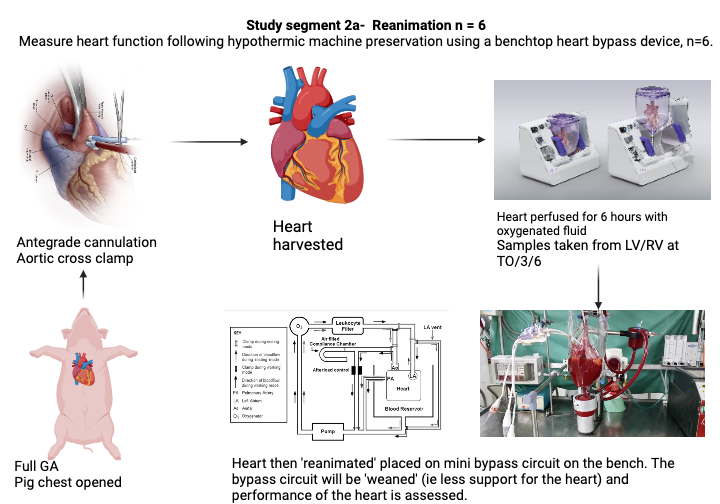A novel Australian medical device (Organ Angel) for oxygenated hypothermic perfusion of donor hearts in a porcine model for up to 6 hours
James Besanko1,2, Toby Coates1,3, James Edwards2, John Beltrame3, Michael Worthington2, Ruchong Ou2.
1Centre for Clinical and Experimental Transplantation(CCET), Royal Adelaide Hospital, Adelaide, Australia; 2D'Arcy Sutherland Cardiothoracic, Royal Adelaide Hospital, Adelaide, Australia; 3Department of Medicine, University of Adelaide, Adelaide, Australia
Evidence from randomised human and experimental trials indicate that the results of heart transplantation improve with the use of perfusion of donor hearts. In these studies, we evaluated the efficacy of a novel mechanical perfusion device in preserving procaine hearts for six hours ex vivo. The device utilises hypothermic perfusion with celsior solution at a low flow rate of 40ml/min. This device is small, portable, weight 16kgs, operates on batteries, fits in a standard economy domestic airline seat and facilitates the flow of oxygenated hypothermic fluid. 12 Porcine hearts were explanted using standard techniques and randomised to either be preserved via cold storage (n=6) or mechanical perfusion (n=6). Following preservation, the hearts were reanimated on a bench bypass circuit and assessed for two hours. Cardiac performance was assessed in the working model after a stabilization period in non-working status (langendorff model).
The mechanical perfusion device demonstrated superior preservation compared to cold storage in terms of cardiac performance (Cardiac output) on the bench bypass circuit electron microscopy, and biochemical normality.
These findings suggest that the mechanical perfusion device provides an alternative to cold storage preservations and has the potential to improve the preservation of hearts for transplantation.

Heartbeat South Australia.
[1] Heart Transplant
[2] Hypothermic perfusion
[3] Low-flow
